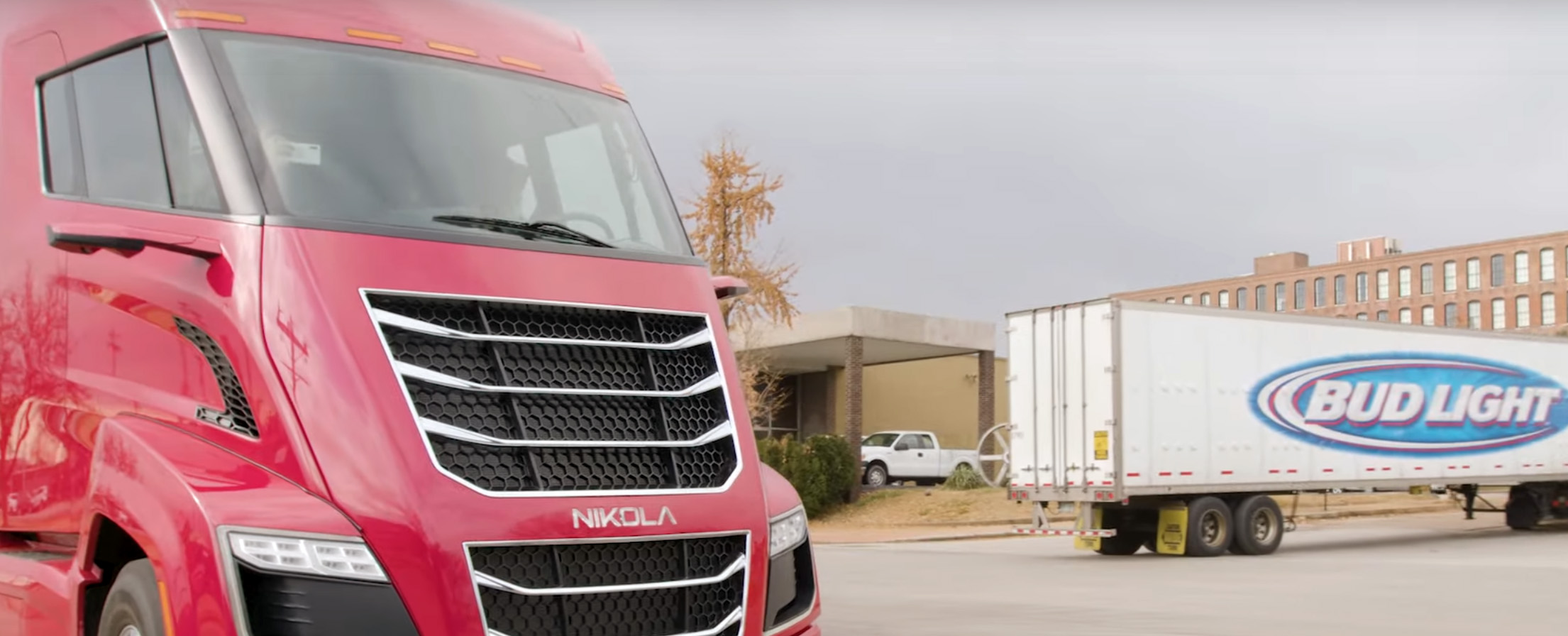Issues lengthy rebuttal to research firm’s incendiary report

Nikola Corp., under fire from a short seller for alleged fraudulent performance claims, has issue a lengthy statement rebutting the allegations, calling the report by Hindenburg research “false and defamatory.”
Additionally, Phoenix-based Nikola, developer of an electric pickup and a line of electric heavy vehicles for the commercial market, said it has filed a complaint with the Securities and Exchange Commission against Hindenburg.
[A 4-min. read]
Hindenburg leveled the claims against Nikola and its founder, Trevor Milton, is a lengthy report published on Sept. 10. The research firm holds a short position in Nikola’s sock – meaning it profits if the stock price falls.
Manipulation?
Nikola’s shares fell as low as $29.11 this morning in trading on the NASDAQ exchange, but had climbed to $35.95 by late afternoon. The stock was trading at $37.57 when the Hindenburg report was released.
In its statement Monday, Nikola said that the research report, issued just two days after Nikola and General Motors Corp. announced a 10-year deal potentially worth billions of dollars to each, was “opportunistic” in its timing and represented an effort to manipulate the market.
Nikola has yet to begin selling vehicles but has designed a trio of commercial freight trucks, or “semis,’ as well as a heavy duty refuse truck and a pickup truck for the retail market. All use electric propulsion systems.
The company has said it has thousands of pre-production orders for its trucks. They include at least 2,500 refuse trucks for Republic Services Inc. and up to 800 semis for brewing giant Anheuser-Busch and several hundred for freight hauler U.S. Express.
Nikola’s trucks can be powered either by a proprietary hydrogen fuel-cell system or a battery-electric system.
As part of its marketing strategy, Nikola has committed to producing hydrogen at prices competitive with diesel fuel and to building a nationwide network of hydrogen fueling and electric battery charging stations to supply the trucks.
The Researchers’ Case
Among Hindenburg’s claims were charged that Milton regularly misstated the state of readiness of prototype trucks it showed investors; misstated his company’s abilities to produce hydrogen, and overstated the value of pre-production orders from customers including U.S. Express.
In its rebuttal, Nikola on Wednesday said that its claims have always been true and that Hindenburg cherry-picked incidents and comments in order to make its case.
Hindenburg alleged that Milton represented a prototype truck shown in 2016 as fully functioning when it wasn’t capable of operating under its own power; that a promotional video showing a pre-production truck in 2017 running on a stretch of high-desert highway failed to make it clear that the truck was coasting down a long grade; and that Milton’s claims that its European-specification Nikola Tre semi was under construction in Germany weren’t true.
The report also questioned Nikola’s ability to produce hydrogen – a centerpiece of the company’s hydrogen fuel-cell powertrain strategy – or to make good on its claims of developing advanced battery technologies.
Nikola’s Response
In rebuttal, Nikola on Monday said that:
The 2016 truck couldn’t be driven because its components had been taken out for display but that each component – transmission, batteries, motors, power inverters and other components were all fully functioning.
It never claimed that the truck in the 2017 video was moving under its own power “although the truck was designed to do just that.” Nikola said it described the truck in the video simply as being “in motion.”
Hindenburg linked Nikola’s battery technology claims to subsequently canceled talks with a battery company called ZapGo Ltd. when, in fact, the technology advances are being developed in “an ongoing confidential R&D partnership with a leading academic institution, not ZapGo.”
The report’s claim that Nikola wasn’t producing the pre-production versions of European-market trucks that it had publicly said were under construction is false. The report cited statements form a Robert Bosch GmbH employee to support its claim, but Bosch – Nikola’s engineering and development partner – has said the quotes were taken out of context. Nikola said that five pre-production trucks are in fact being built at a Bosch facility in Ulm, Germany.
Nikola’s statement goes on to identify and rebut numerous other claims made by Hindenburg.
While the report certainly affected Nikola’s stock price for a few days, the company’s shares seemed Monday to be heading back to pre-Hindenburg levels.
Unless the SEC does investigate and take some action to uphold or refute the research firm’s claims, the whole mess likely will become a “they said –we said” dispute that will haunt Nikola until it settles things through its real word performance.
Meantime. Nikola is relying on its history of investment successes and business partnerships to show that it is a company that’s on the up-and-up.
It said in Monday’s statement that is “has been through extensive due diligence” investigations by numerous major players “starting with Bosch in 2017, [South Korean conglomerate] Hanwha Group and [venture investor] ValueAct Capital in 2018, CHN Industrial N.V. [parent of Iveco trucks ] in 2019 and…General Motors in 2020.”
